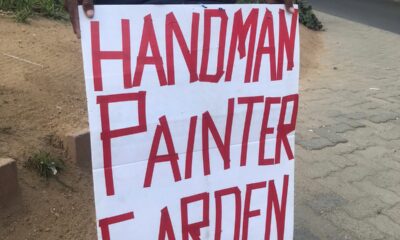Best of Johannesburg
When the Internet Becomes the Judge: The Cost of Going Viral in South Africa 2025

You share a clip, it gets a thousand views in minutes, and the comments fly. Then someone tags your employer, screenshots start circulating, and your name is trending for the wrong reason. In South Africa, right now, going viral is no longer just about hitting fame; it’s about navigating a legal, reputational, and emotional minefield.
The shift from spotlight to spotlight with consequences
In 2025, South Africa’s online culture carries heavy consequences when content spreads beyond your circle. Posts, shares, and tags are all seen as “publications” under the law and can expose users to civil or even criminal liability. What began as a social media moment can spiral into legal claims, lost jobs, mental distress, and even physical danger.
Which laws matter when the internet turns on you
Under the Cybercrimes Act 19 of 2020, certain harmful communications, like sharing intimate images without consent or inciting violence, are criminal offences. This Act came into force in 2021 and built on earlier legislation to make cyberspace a regulated zone.
Meanwhile, the courts have confirmed that the law of defamation applies to tweets, posts, and even private groups: you are as liable for or linked to a defamatory post as traditional media outlets.
And let’s not forget the Prevention and Combating of Hate Crimes and Hate Speech Act, 2023 (signed into law in 2024): it recognises online hate speech as prosecutable and reaffirms that freedom of expression is not a shield for attacking others.
Why the “internet justice” culture is so risky
Because the internet can feel instant and invincible, many South Africans forget that what applies offline still holds online.
Reputation risk hits fast: before facts are verified, somebody’s life can change in hours.
Professionally, you can lose your job or see your career stall when your name becomes associated with a viral incident, even if you posted something six months earlier.
Online vigilantism is real: doxxing, swatting, and mob-shaming all have roots in social platforms, and they spill into the physical world.
Due process gets sidelined: when a hashtag judges you publicly, the presumption of innocence gets ignored.
And poor mental health outcomes are increasingly common among those targeted, with surveys showing victims suffer anxiety, depression, and social withdrawal.
What this means on the ground in Johannesburg and beyond
In Johannesburg’s hustle-and-bustle environment, where social media buzz is part of everyday life, the stakes are high. Think about this: you’re at a lively café in Rosebank, you film someone making a remark, you post it, and it goes viral. Even if your motivation was innocent, if the person recorded didn’t consent, or if their words were misinterpreted, you could now be on the wrong side of the law.
Employers in Gauteng are awake to how social buzz impacts company image: one ill-judged retweet can lead to disciplinary action or dismissal.
And the wider community sees the damage from viral fallouts, families seasoned by trauma, as reputational damage affects not just individuals but those around them, too.
How to steer clear of the viral trap
Take a moment before you post. Ask yourself: Is this accurate? Do I have consent? Could this bleed into a legal claim for defamation or privacy violation?
If someone’s personal details, image, or location are in the post without consent, you’re treading into the territory of the Protection of Personal Information Act, 2013, or privacy law.
If you’re tagged or involved in a post that’s defamatory, hateful, or unverified, disassociate yourself publicly and seek legal advice.
Victims of viral online abuse should document and save evidence, report the content to the platform, and consult legal help early.
Digital literacy matters: use privacy settings wisely, stay informed about how online behaviour can carry offline consequences, and remember that the internet doesn’t absolve responsibility.
A fresh lens on going viral in 2025
Going viral won’t always bring fame or fortune; now it can bring scrutiny, legal liability, and long-term fallout. In South Africa, where the legacy of free speech is entwined with the scars of collective injustice, the law is catching up to digital realities. The online realm is no longer the Wild West.
For South Africans, it means being savvy about what you share and mindful that your digital footprint might just become a legal trail. The internet acting as judge is real, and in 2025, it has teeth.
Also read: From Outrage to Action: How South Africans Can Help After a Local Tragedy in 2025
Follow Joburg ETC on Facebook, Twitter, TikT
For more News in Johannesburg, visit joburgetc.com
Featured Image: Cyber Havoc –


























